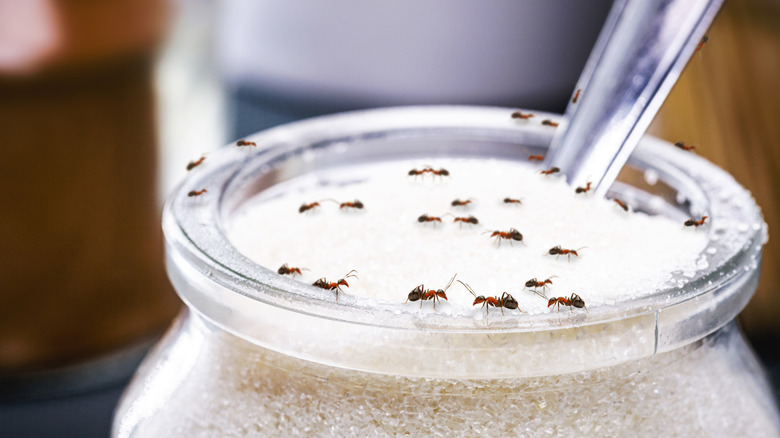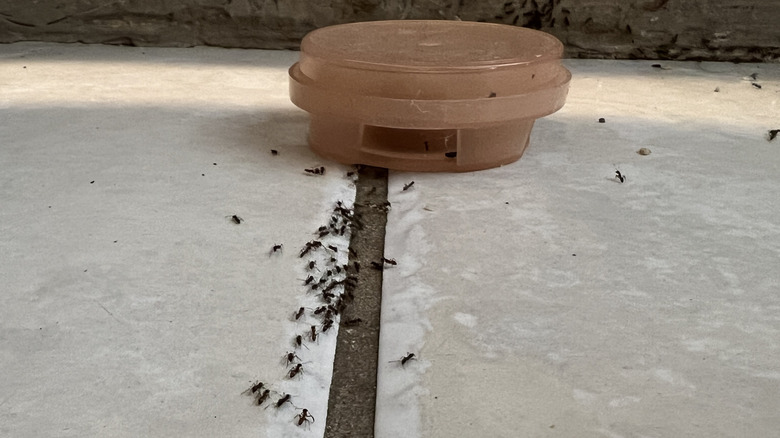The Unexpected Reason That Your Ant Bait May Not Be Working
It's easy to assume that if ants are still marching across your kitchen counter or floor after setting out an ant bait, the product might be faulty. However, if there is one thing to know about why this happens, it's that more often than not, the bait or insecticide isn't at fault; instead, the ants simply may not be attracted to it. According to Eric Benson, Ph.D., professor emeritus and extension entomologist at Clemson University, ants do not develop resistance to baits the way cockroaches and flies do. As such, you can use either natural or synthetic ways to get rid of ants, and the colony will only be eliminated if they are attracted to these baits in the first place.
For ants to be attracted to a bait, it should first meet their food preferences. A colony's food preference tends to vary based on species and the season. For instance, Pharaoh, green-head, and funnel ants will likely swarm over protein baits, while Argentine and carpenter ants will only set out if the baits contain carbs and sugar. Additionally, sugar ants typically go for sweet traps when they are preparing for the colder months.
Other reasons why your ant bait is failing
Colony size is another reason ant bait may not work as intended. Bait traps spread through the interaction between the ants. A few ants may carry the insecticide to their nest, and the rest of the colony can get infected, causing their entire horde to be wiped out. This usually works with small colonies, but in massive nests, the bait may not spread through the entire population. As a result, many ants will be left unaffected, and they can just start the infestation all over again.
At the same time, where you place your bait is another possible reason for its failure. If it isn't placed along the ants' foraging trails or near entry points, there's a chance the worker ants will never find it. This is why, when using Terro liquid ant bait, determining where most of the ant activity is happening is important. The same is true for all other types of traps and insecticides. Relocating your bait can solve this problem, but this requires patience and observation. Also, ant baits can be harmful to humans when ingested, so keep them away from sinks and water sources.
When to call for professional help
If you have already switched up your baits, increased the volume, and experimented with placement without success, it may be time to call in the professionals. Large and persistent colonies are incredibly difficult to handle with just store-bought products and traps. Professional pest control companies have access to stronger and more diverse formulas that are not available to regular consumers. They also have the expertise to identify what kind of ant is plaguing your home and the ways to eliminate them. This is important since certain types of ants are only receptive to specific treatment strategies.
Bringing in the professionals also makes sense when the infestation in your property already poses serious risks and is not just a simple annoyance. Invasive species like fire ants can cause painful, burning, and itchy stings, and they spread aggressively. Meanwhile, carpenter ants can ruin the structural integrity of the wooden beams in your home. When left untreated, these ants will cause serious problems for everyone in the household. While DIY baiting can be effective against small infestations, hiring professionals can save time, frustration, and costly repairs. They will not only target the source of the ant colony, but also administer preventive measures and monitoring to ensure that your ant problem will hardly come back.


